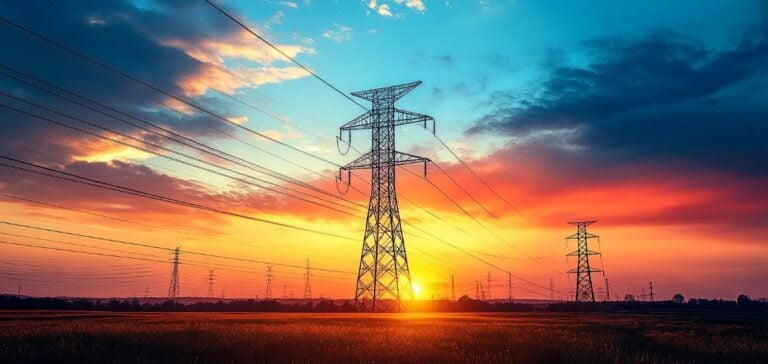Electricity production in France experienced a remarkable rebound in 2024, reaching a total of 536.5 terawatt-hours (TWh), an unprecedented level in five years. This achievement relies on the combined performance of the nuclear sector and renewable energies, enabling France to display one of the world’s most decarbonized energy profiles.
Nuclear power remains the cornerstone of French production, accounting for 67.41% of the energy mix with 361.7 TWh. After challenges linked to corrosion issues in 2022, the sector has regained its efficiency, showing significant growth compared to previous production levels. This rapid recovery has played a major role in ensuring the stability of the national energy system.
A remarkable rise in renewable energy
Meanwhile, renewable energies have reached a record 27.6%, amounting to a total production of 148 TWh. Hydropower played a key role, achieving its best performance since 2013 thanks to exceptional rainfall. Wind energy, with 46.6 TWh, and solar energy, with 23.3 TWh, also saw significant increases, demonstrating the rapid growth of these sectors.
The figures reveal an encouraging trend: nuclear and renewable energies are not in opposition but complement each other, as highlighted by Thomas Veyrenc, Director-General of RTE (Réseau de Transport d’Électricité). This combined model offers France a strategic lever to achieve its climate goals.
A historic drop in fossil fuels
In contrast, electricity production from fossil fuels hit its lowest level since the 1950s, with only 19.9 TWh in 2024. Coal, a major emitter of greenhouse gases, generated only 0.7 TWh, while oil and gas contributed 1.8 TWh and 17.4 TWh, respectively. This reduction aligns with a strategy to shut down the last coal plants by 2027.
The carbon intensity of French electricity now stands at 21.3 grams of CO2 per kilowatt-hour, making France one of the least polluting countries in terms of electricity production. This performance highlights the nation’s ability to reduce its carbon footprint while increasing energy production.
Challenges ahead
Although nearly all electricity produced in France is now low-carbon, the major challenge remains the electrification of sectors heavily dependent on fossil fuels, such as transport, industry, and housing. Currently, these sectors still rely on fossil fuels for 60% of their energy needs.
To address these challenges, France will need to invest in appropriate infrastructure, further develop renewable energies, and accelerate the shift to electric technologies. These steps will be critical to achieving carbon neutrality by 2050.






















